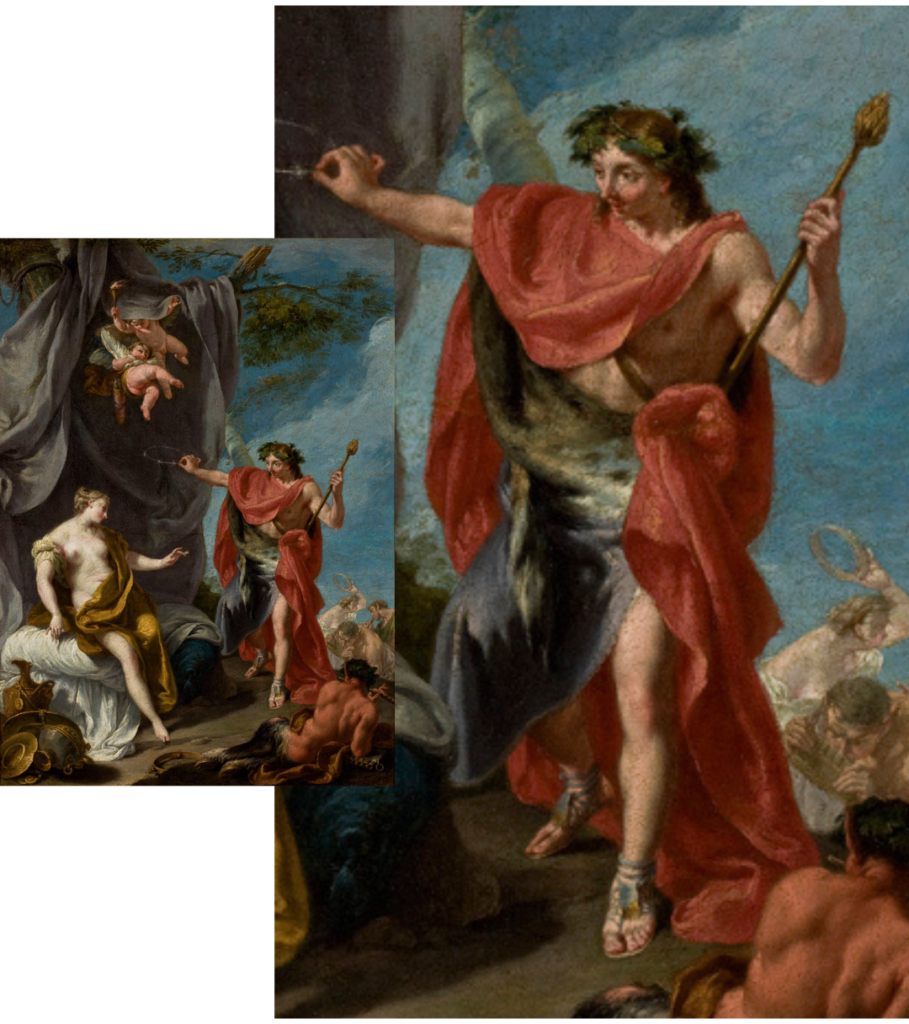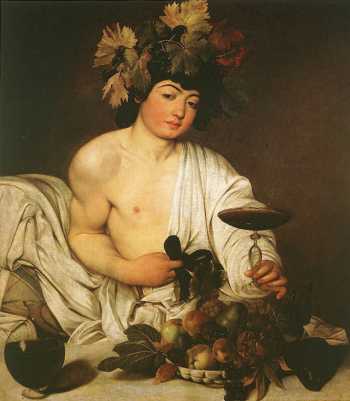This week, Cantenac Brown has decided to talk about wine through the gods that represent it: Dionysus (Greek mythology) and Bacchus (Roman mythology).
How did Dionysus and Bacchus become the gods of wine?
These gods would have been born from fire and would have been nourished by the rains. Their birth corresponds to the development of grapes. Heat nourishes the fruit and water keeps it alive.
The story goes that one day Dionysus (or Bacchus) observed a snake biting a bunch of grapes. He took the bunch, pressed the fruit and drank the juice. This is when he had the idea to create wine. Afterwards, Dionysus decided to travel the world to teach people how to make wine.
Dionysus, the God of wine in Greek mythology
How is he represented?
Older images and descriptions of Dionysus depict him as a mature man, with a beard and a toga, holding a branch of fennel ending in a pine cone.
But in less ancient images, the god is depicted without a beard and is sensual, naked or half-naked, young and androgynous. Moreover, he is described in the scriptures as a “female man” or effeminate.
What are his other responsibilities?
In addition to being God of the vine and wine, he is also responsible for the excesses that follow from it, the madness and excesses. He is a major figure of the Greek religion and a god of primary importance.

Bacchus, the Roman God of wine
How is he represented?
He is often found young and smiling, with horns, holding in one hand a thyrse surrounded by vines and ivy, and in the other a bunch of grapes.
What are his other responsibilities?
God of the vine and the wine, but not only! He is also god of festivities, dance, pleasures and vegetation. We owe him the apprenticeship of the viticulture and it is also because of him that we know some excesses due to alcohol.

© Galerie des Offices de Florence


